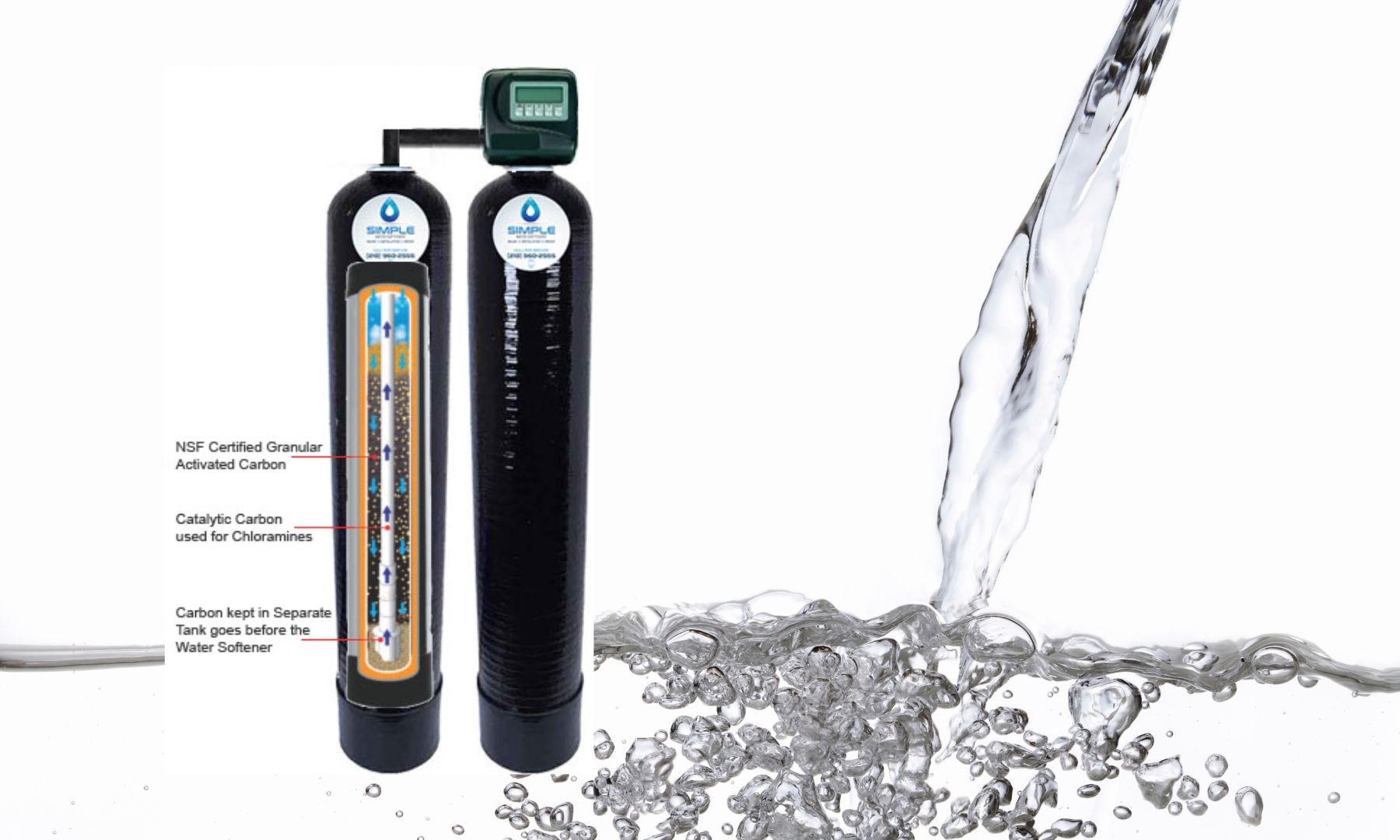
10 Mar. 23
Why You Need an Activated Carbon Filter for Your Home
Activated carbon filters are a great way to remove contaminants from your drinking water and other water sources. They are becoming increasingly popular due to their ability to remove a wide range of contaminants, including chlorine, organic compounds, and heavy metals. This blog post will discuss the many benefits of using activated carbon filters and what contaminants they can remove from water. Read on to learn more about how these powerful filters can help keep your water clean and safe to drink.
What is an Activated Carbon Filter?
Activated carbon filters, also known as activated charcoal filters, are a type of water filter that utilizes activated carbon in order to remove impurities from the water. Activated carbon works through adsorption, meaning it attracts and captures organic chemicals, toxins, and other contaminants from the water. The result is pure, clean water that is free from many of the contaminants that can be present in tap water.
Activated carbon filters come in a variety of forms, ranging from small filter pitchers that you can use to purify drinking water to large systems that are used in homes and businesses to provide clean water throughout an entire building. No matter what size or type of filter you choose, the activated carbon within will work to remove contaminants and leave you with cleaner, tastier water.
How Does an Activated Carbon Filter Work?
Activated carbon filters are an efficient and effective way to remove a wide range of contaminants from water. The filter works by using the physical properties of activated carbon to adsorb contaminants, meaning that they stick to the surface of the filter and are trapped there.
Activated carbon filters are made up of tiny activated carbon particles that create a porous surface. As water passes through the filter, the contaminants are attracted to and held onto the activated carbon particles due to their high surface area and strong electrical attraction. This process is known as adsorption, and it allows the filter to remove a wide range of contaminants including chlorine, herbicides, pesticides, and organic compounds.
The effectiveness of activated carbon filters depends on the size of the particles used in the filter and the amount of time the water spends in contact with the filter. The larger the activated carbon particles, the more effective the filter will be. Additionally, water must spend enough time in contact with the filter for the contaminants to be properly adsorbed.
In order for an activated carbon filter to be effective, it must be changed regularly, as the filter can become clogged over time and may not effectively remove contaminants if it is not replaced. By replacing your activated carbon filter regularly, you can ensure that it is effectively removing contaminants from your water supply.
What Contaminants Can Activated Carbon Remove from Water?
Activated carbon is an incredibly powerful filter for water, as it can remove a wide variety of contaminants from the water. Some of the most common contaminants that activated carbon filters remove include chlorine, chloramine, herbicides, pesticides, pharmaceuticals, and volatile organic compounds (VOCs).
Chlorine and chloramine are commonly used to disinfect drinking water. Unfortunately, they can have adverse health effects if ingested in large quantities. Activated carbon filters effectively remove these chemicals from water, making it safe to drink.
Herbicides and pesticides are frequently used in agricultural and urban areas. These chemicals can leach into drinking water and cause health issues if ingested in large quantities. Fortunately, activated carbon filters are incredibly effective at removing these chemicals from water.
Pharmaceuticals are commonly used drugs such as antibiotics, hormones, steroids, and other compounds. These chemicals can enter drinking water supplies from sewage treatment plants or from manufacturing processes. Fortunately, activated carbon filters are very effective at removing these compounds from water.
Volatile organic compounds (VOCs) are a large family of chemical compounds that can easily evaporate at room temperature. Common VOCs include benzene, trichloroethylene, and other petroleum-based compounds. Activated carbon is highly effective at removing VOCs from drinking water, making it safer to drink.
Overall, activated carbon filters provide a powerful filtration solution for many kinds of contaminants. These filters can effectively remove chlorine, chloramine, herbicides, pesticides, pharmaceuticals, and VOCs from drinking water. Activated carbon is an important tool for ensuring that your drinking water is safe and free of dangerous contaminants.
An activated carbon filter can be a great way to make sure your water is safe and free of contaminants. It’s important to find the right filter for your needs, and a whole house filtration system is a great option if you want to make sure that all the water in your home is filtered. A whole house filtration system will provide you with consistent, clean water throughout your home, making sure all your faucets are free of contaminants. Investing in a quality activated carbon filter is an investment in your health, and it’s worth it.
If you want more information about the benefits and information, please call Lisa at (210) 960-2555 or email us at lisa@simplewatersofteners.com.


